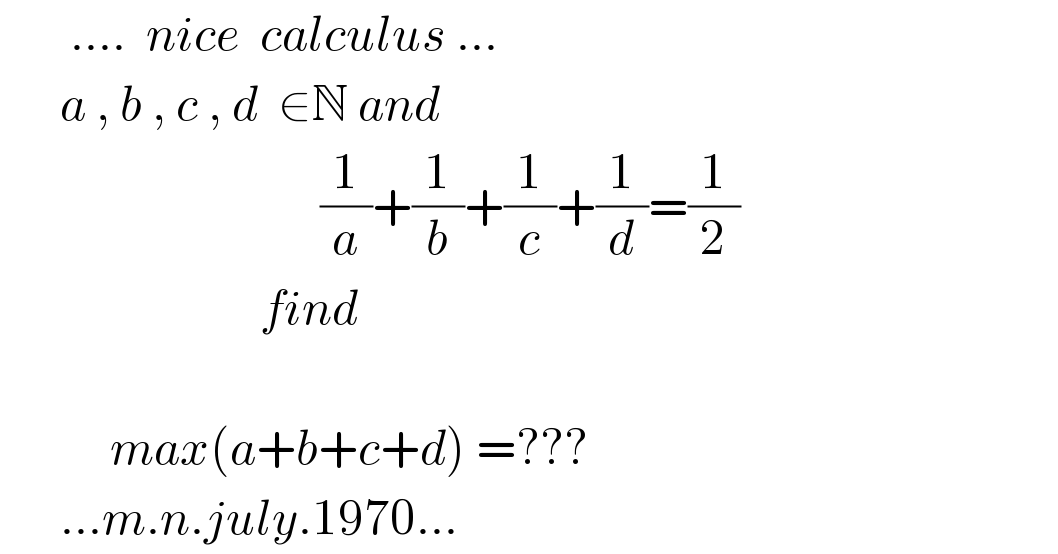
Question and Answers Forum
Question Number 115058 by mnjuly1970 last updated on 23/Sep/20

Answered by 1549442205PVT last updated on 25/Sep/20

Commented by mnjuly1970 last updated on 23/Sep/20

| ||
Question and Answers Forum | ||
Question Number 115058 by mnjuly1970 last updated on 23/Sep/20 | ||
 | ||
Answered by 1549442205PVT last updated on 25/Sep/20 | ||
 | ||
| ||
Commented by mnjuly1970 last updated on 23/Sep/20 | ||
 | ||